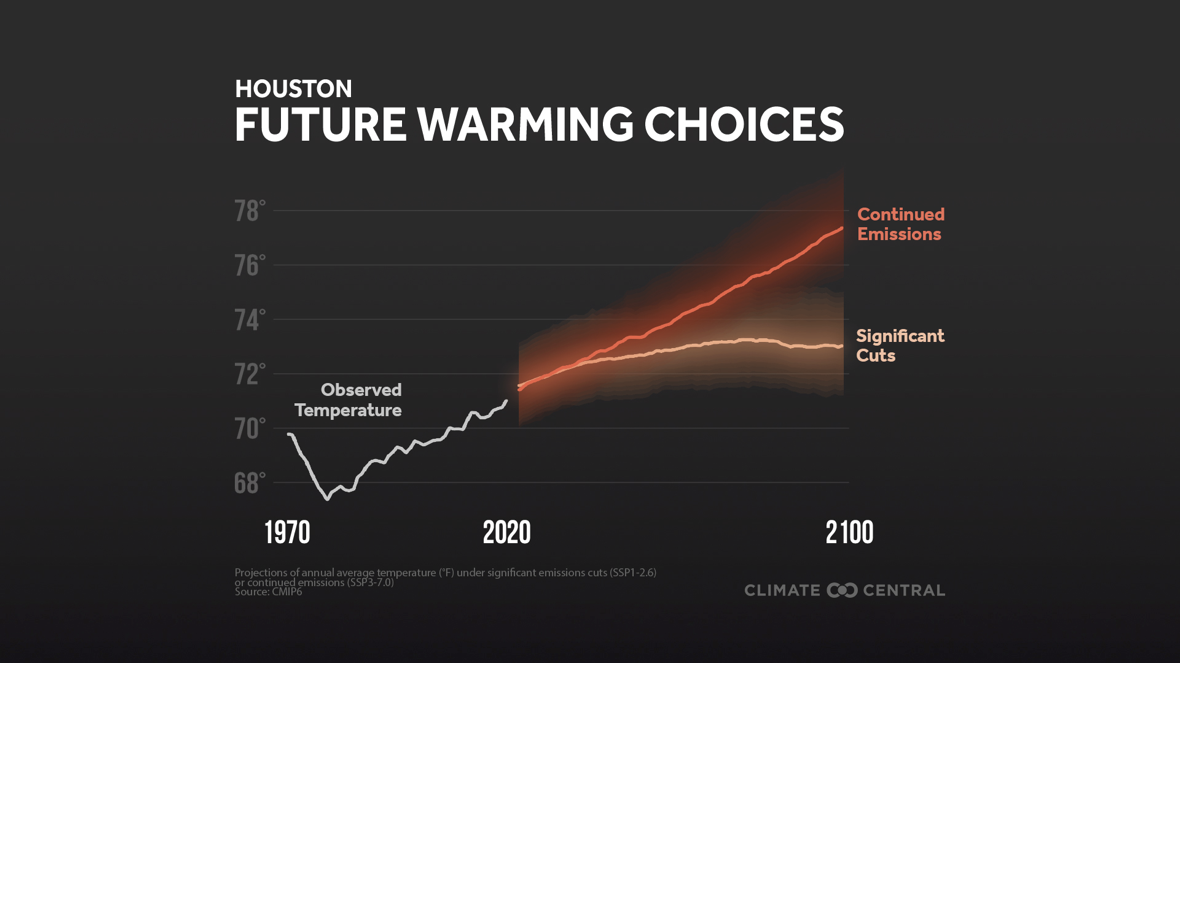New Report: Climate Change is an Emergency for Texas
AUSTIN, TX — As the UN Climate Change Conference of the Parties (COP26) draws to a close, Texas Physicians for Social Responsibility (Texas PSR) sound the alarm regarding the damaging impacts of climate change on the health and wellbeing of Texans in a new report. The report lays out the striking and distressing impacts of climate change on the current and future health and well-being of Texans, especially children, older adults, people with disabilities or pre-existing medical conditions, and marginalized and underserved communities.
The report finds that climate change is a slow-moving catastrophe for the health of Texans. Days over 100 degrees will almost double between now and 2036, meaning more people will die from heat stroke and others will be permanently disabled. Hurricanes will continue to become more intense and extreme. Rainfall and flooding are projected to increase by 15 percent in the next 15 years, contaminating water supplies and increasing the risk of injury and death through storm-related accidents, drowning, and disruption to healthcare infrastructure.
“Climate change is the greatest public health threat of our time,” said Dr. Lisa Doggett, a family physician and president of Texas PSR. “Urgent global action is needed to reduce its impact and mitigate its effects. We need a massive shift to renewable energy to protect the health and future of Texas families and communities.”
Already, 72 percent of Texans live in areas with an elevated risk for wildfires. By 2050, Texas is expected to face a greater threat from wildfires than any other state. Wildfires destroy houses, businesses and infrastructure, and worsen air quality for hundreds of miles, contributing to respiratory infections, asthma attacks, heart disease, and higher death rates.
“Climate change perpetuates the environmental injustice that socioeconomically disadvantaged groups have historically endured. An astoundingly disproportionate number of Blacks and Latinos, lower income families, immigrants and refugees succumb and also tend to have worse outcomes because of undiagnosed underlying medical conditions and lack of insurance,” said Dr. Pooja Pundhir, an internist and board member of Texas PSR. “These families are exposed to toxic, cancer-causing agents, polluted air and water, extreme temperatures and also disastrous extreme weather events because of where they live, leading to a higher incidence of cancers, premature births, and respiratory illnesses. Equitable health and safety must be prioritized over profit.”
The report includes recommended actions for individuals, health professionals, and the local, state and federal government. The report urges all levels of government to act urgently and work together to transition to non-combustion, renewable energy sources. It also recommends that the government end subsidies and support for the fossil fuel industry and make investments and advance health equity and environmental justice. For health professionals, the report recommends recognizing climate change as a public health emergency and focusing on climate health preparedness.

